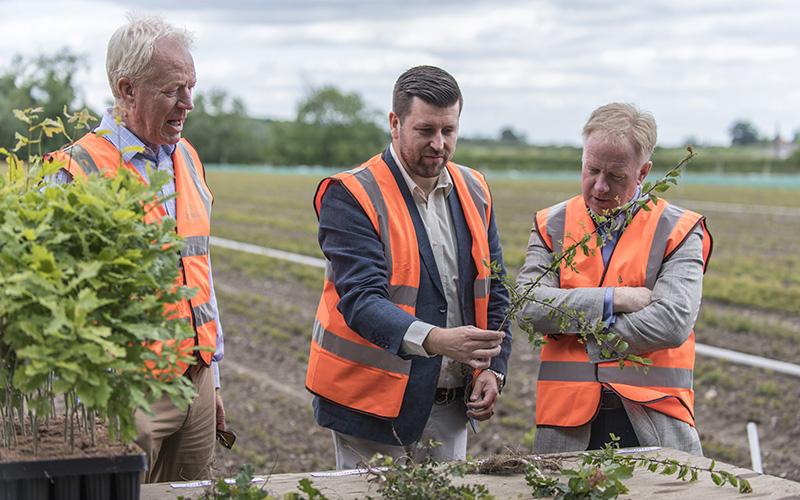
Landscape and wildlife habitat protection from HS2
Hidden by headlines concerning the next prime minister and Brexit, Britain’s largest infrastructure project, HS2, has been gathering pace.
Works for phase one of the project, which focusses on a section of high-speed rail between London and Birmingham, has already started. In many parts of the country land has already been cleared either for enabling works or for the line footprint itself.
One of the main challenges associated with the HS2 project is mitigation for the habitats and landscapes lost during the construction phase of the project. There is no avoiding the fact that large areas of land must be cleared either as part of the enabling works or the footprint of the line. Regardless of the quality of the landscape or value of habitats, the loss of any landscape is a contentious issue and HS2 was no exception.
A significant environmental team working for the HS2 project have been involved from the outset, to ensure the project is undertaken with the minimum disturbance, and all opportunities are used to create new landscapes and habitats to mitigate those lost.
Mitigation works have already started; 350,000 new trees have been planted together with 46 areas of new habitat created for wildlife. BALI member, Crowders Nurseries, has been contracted to supply 7 million trees, which will be used to create more than 650 hectares of new woodland between London and Birmingham along the first phase of the HS2 route. Crowders Nurseries was awarded the contract in 2016, and since then has been growing plants on site for the project. Whilst advance procurement is not a new concept to Crowders – they have previously supplied plants for other large infrastructure projects, including HS1 (the Channel Tunnel rail link) and more recently the Olympic Park – this is the biggest contract in Crowders Nurseries’ 218 year history.
Appropriate species selection is critical for the long term success of the landscaping elements of the project. To ensure plants used in the project are resilient and able to tolerate an increasingly warm and dry climate, propagation material and sample specimens have been selected from southern areas. Again, Crowders have been instrumental in growing this material and ensuring it is ready for planting in the next few years.
Crowders has recently recruited 4 apprentices due to the increased workload.
The size of the HS2 project means there will be thousands of opportunities within the HS2 supply chain, across many business sectors. It is predicted that every ten direct, tier one major works contract will result in over 10,000 indirect supply chain opportunities. BALI will share information for future events where members will be able to explore opportunities for involvement.
